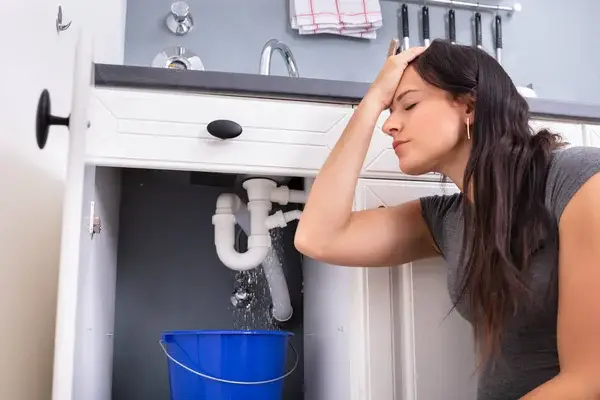
When a plumbing emergency strikes, every second counts. Whether it’s a burst pipe, overflowing toilet, or sudden water heater failure, knowing what to do before a professional arrives can help minimize damage and keep your home safe.
If you’re searching for an “emergency plumber near me,” follow these crucial steps to take control of the situation while waiting for expert help.
1. Shut Off the Water Supply Immediately
The first and most important step in any plumbing emergency is stopping the water flow. Here’s how:
• For burst pipes or major leaks: Locate your home’s main water shutoff valve (usually near the water meter or where the main line enters the house) and turn it clockwise to stop the water supply.
• For an overflowing toilet: Shut off the small valve behind the toilet by turning it clockwise.
• For a leaking sink or appliance: Look under the sink or behind the appliance for a shutoff valve and turn it off.
By acting quickly, you can prevent flooding and costly water damage.
2. Contain the Leak and Remove Excess Water
Once the water is off, focus on damage control:
✔️ Use towels, mops, and buckets to soak up standing water.
✔️ If water is near electrical outlets or appliances, turn off the electricity at the breaker box to prevent electrical hazards.
✔️ Place a bucket under leaks and use duct tape or plumber’s tape for a temporary seal.
The faster you contain the mess, the easier it will be for your plumber to address the issue.
3. Try Quick Fixes for Common Emergencies
While waiting for your emergency plumber, you can take a few temporary measures to manage the situation:
• Burst pipe: Wrap a towel around the pipe and use duct tape to hold it in place. If available, apply a pipe clamp for added stability.
• Clogged toilet: Use a flange plunger (designed for toilets) and avoid flushing repeatedly, which can make the overflow worse.
• Leaky faucet: Turn off the water supply and wrap a cloth around the faucet to minimize dripping.
• Water heater failure: If you suspect a leak, turn off the cold water inlet valve and switch off the power or gas supply to prevent further damage.
These quick fixes won’t solve the problem permanently, but they can reduce immediate risks until your plumber arrives.
4. Avoid DIY Mistakes That Can Make Things Worse
In a panic, homeowners sometimes make errors that worsen the problem. Here’s what NOT to do:
🚫 Don’t use chemical drain cleaners for clogs—they can corrode pipes and make the issue harder to fix.
🚫 Don’t tighten pipes too much—overtightening can crack fittings and create a bigger leak.
🚫 Don’t ignore gas leaks—if you smell gas near your water heater, evacuate immediately and call emergency services.
5. Call a Trusted Emergency Plumber Near You
Once you’ve contained the situation, call an emergency plumber in your area for professional help. When searching for the best service, consider:
✔️ 24/7 availability – Emergencies don’t wait, and neither should your plumber.
✔️ Licensed and insured professionals – Ensure they have the proper certifications.
✔️ Customer reviews and ratings – A quick search for “emergency plumber near me” can reveal trusted options.
Stay Prepared for Future Plumbing Emergencies
To avoid future disasters, take preventive steps:
• Know where your shutoff valves are before an emergency happens.
• Schedule regular plumbing inspections to catch issues early.
• Keep an emergency plumbing kit with essentials like a plunger, plumber’s tape, and a pipe wrench.
A plumbing emergency can be overwhelming, but taking the right steps before your plumber arrives can make a huge difference. Shut off the water, contain the leak, try quick fixes, and call a professional immediately. By staying calm and prepared, you can minimize damage and get your plumbing system back on track faster.
Need an emergency plumber now? Contact Custom Flow Plumbers for immediate assistance.
